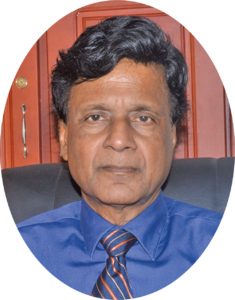
The following was first offered in 2008 and republished several times. I have always marvelled that, because I have also spoken
out against anti-Indian racism by some African-Guyanese, I have been branded as “racist”. The abused can also become abusers.
“In our estimation, the African experience in the “New World” defines the word “marginalisation” in conjunction with “racism”. Following the powerlessness of the Indigenous Peoples of the Americas to withstand the labour demands and dis
eases of the Spaniards (evidenced by ninety percent of then dying off in the Caribbean within decades of Columbus’s arrival) the Christian Church recommended the importation of Africans as slaves. As opposed to the Amerindians, they could discern no sign of a “soul” in the latter group – deeming them beyond salvation. They were fair game for slavery – or extermination, for that matter.
The enthusiastic entry of the English into the trade dragged 3.1 million Africans to the West Indies, but only 2.7 million survived the Atlantic crossing. That only 600,000 survived at “Emancipation” in 1834 offers a clue to their living conditions, and the ravages of the Middle Passage. The appallingly barbaric treatment, which included the most vicious physical brutalisation, destruction of families, wrenching away of languages and cultures etc., impelled the creation of some sort of rationalization, since Europeans insisted they were “civilised”.
Early on, slaves work
ing alongside white European indentured slaves were simply defined as soulless “heathens,” and could be kept on the margins as such. It was when they started to convert to Christianity that colour became the marker to distinguish them from the “mainstream”. “Race” as we now know it was created and transmuted into racist practice that relegated and maintained Africans to the margins of society.
As I wrote in 1993, “Race and racism, as we know them today, are very modern constructs arising out of a European 18th century discourse that ran parallel with the European conquest of the rest of the world, and especially with the justification of African slavery. Notable rationalists such as Hume, Kant and Hegel were involved in the project, which gave a social significance to physical markers. This is illustrated in Hume’s position that, “negroes…are naturally inferior to the whites”, and Kant’s view, summarised by his comment, “this fellow was quite black …a clear proof that what he said was stupid.” My contention is that “race and racism” are part and parcel of the “Western Enlightenment,” exported as one weapon in the European arsenal of imperialistic conquest.”
“African and Black” was constructed as the binary opposite to “European and White”, and, like all dualities, it is not possible to eliminate one without the other. Racism is not a phenomenon that ended with the abolition of slavery – and it has not ended, even though many assert that “race” has no objective existence. It persists in the totality of its relations that have become imbricated on the sinews of the civilization that we all practice. Its panoptic gaze has taken in other “natives”, but its emblematic and defining instance remains African racism.
Following Foucault
, one can consider racism as a discursive field that incorporates beliefs, descriptions and actions, and the principles on which racist institutions are based. The discursive formation would include the normative rules and norms – including laws and moral rules about how we “ought” to act towards each other.
In the words of Cornell West, racist discourse is a product of the “structure of modern discourse…the controlling metaphors, notions, categories and norms that shape the predominant conceptions of truth and knowledge in the modern west.” As I wrote in 2006, West assure
s us that “there are the lingering effects of slavery and past discrimination in the continued attack on black humanity and racist stereotypes which are designed to destroy black self-image”. This, if true – and I believe it is – would perpetuate the continued marginalisation of Africans in the world, including in Guyana.
To appreciate the parameters of its continued impact on the marginalisation of Africans in Guyana, one must inquire into the extent to which the premises of the old discourse of race and racism have survived into our particular socio-historical conjuncture, and continue to influence our thinking and narratives. To suggest how difficult this project would be is to consider that even the empirical sociological tools we would probably use — such as, say, social psychology — are all contaminated with premises of “races”, “racial differences” and “racial attitudes”. But the task must be initiated and programmes initiated to eradicate the cancer of racism. We would all be liberated.

